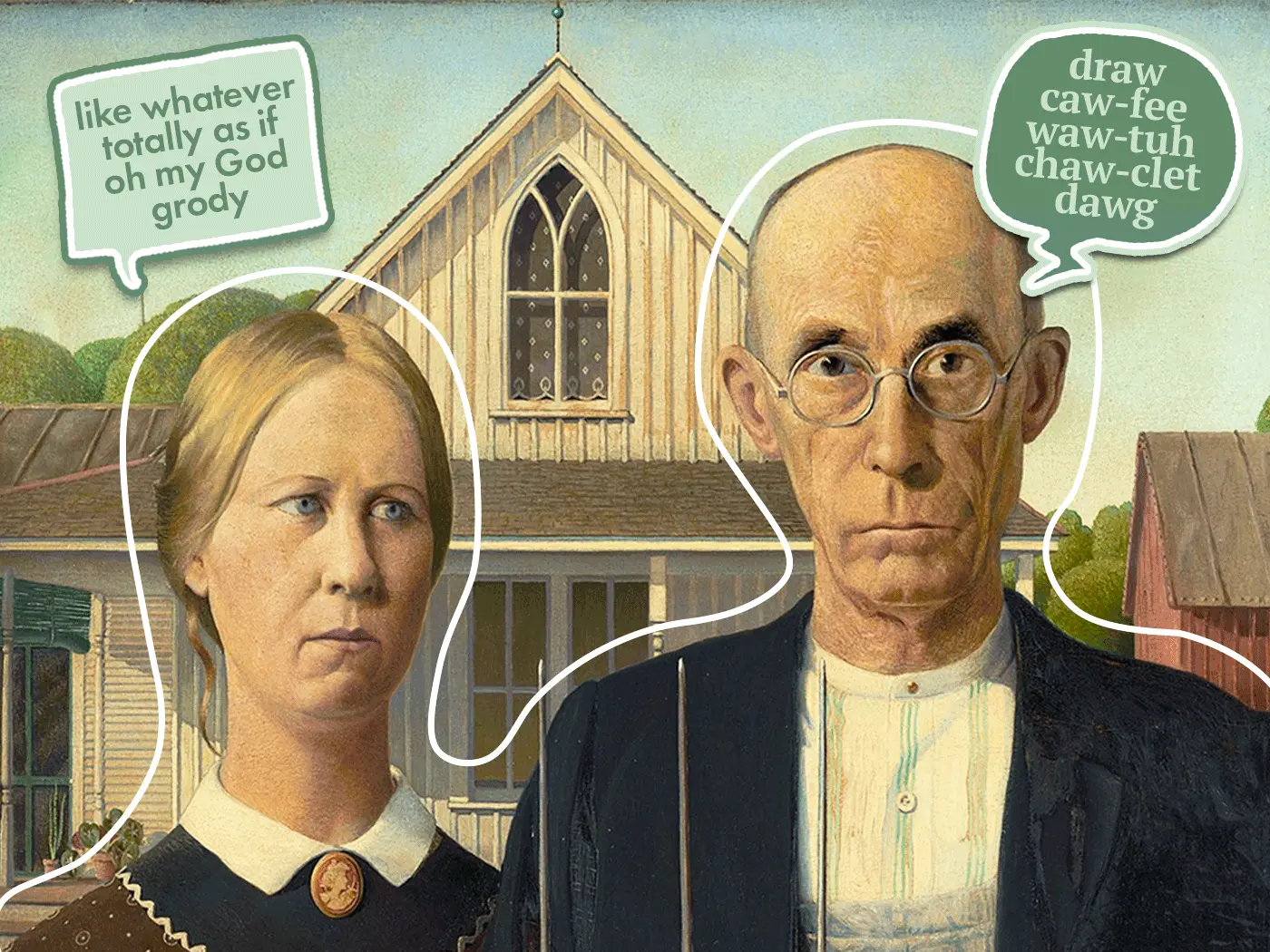Language
Why Aren't Dolphins in the Great Lakes? And More Questions From Our Readers
You’ve got questions. We’ve got experts
These Small Birds Flutter Their Wings to Say 'After You' to Their Partner
A new study of Japanese tits provides the first evidence of non-primate animals using gestures to convey messages
Dogs Can Understand the Words for Several Objects, Such as Toys and Leashes, Study Finds
Your dog may know the word "ball" is associated with their favorite round squishy toy, according to new research that measured brain waves
Words Etched Into an Ancient Bronze Hand Hint at the Mysterious Origins of the Basque Language
Archaeologists unearthed the 2,100-year-old artifact in northern Spain and discovered the inscription contains two words that resemble those of the modern language Euskara
Did the People of Easter Island Invent a Writing System From Scratch?
Radiocarbon dating has found that a tablet inscribed with the mysterious rongorongo script predates European contact
Could Volcanoes Power Our Planet? And More Questions From Our Readers
You’ve got questions. We’ve got experts
A.I. Learns Words From a Human Baby's Perspective, Using Headcam Footage
With only limited training, the model could correctly identify certain objects, suggesting some elements of learning language are not innate to humans
Three Students Just Deciphered the First Passages of a 2,000-Year-Old Scroll Burned in Vesuvius' Eruption
The trio used artificial intelligence to decode sections of the text, which appear to be a philosophical exploration of pleasure
These Parrots Won't Stop Swearing. Will They Learn to Behave—or Corrupt the Entire Flock?
A British zoo hopes the good manners of a larger group will rub off on the eight misbehaving birds
Engravings on 2,000-Year-Old Knife Might Be the Oldest Runes Ever Found in Denmark
The letters on the blade read "hirila," which experts say may translate to "small sword"
A Brief History of the United States' Accents and Dialects
Migration patterns, cultural ties, geographic regions and class differences all shape speaking patterns
Why the Language We Use to Describe Japanese American Incarceration During World War II Matters
A descendant of concentration camp survivors argues that using the right vocabulary can help clarify the stakes when confronting wartime trauma
'Hallucinate' Is Dictionary.com's Word of the Year for 2023
In the context of artificial intelligence, the word means "to produce false information" and "present it as if true"
A Book Club Began 'Finnegans Wake' in 1995. After 28 Years, It Finally Reached the End
The group meets once a month to talk about one or two pages of the bewildering James Joyce novel
‘Rizz’ Is Oxford’s 2023 Word of the Year
The word means “style, charm or attractiveness” or “the ability to attract a romantic or sexual partner"
Merriam-Webster's 2023 Word of the Year Is 'Authentic'
As technology's ability to manipulate reality improves, we're all searching for the truth
This 21-Year-Old Used A.I. to Decipher Text From a Scroll That Hasn’t Been Read in 2,000 Years
The papyrus scroll is one of hundreds that were carbonized in the eruption of Mount Vesuvius in 79 C.E.
Human Cells Display a Mathematical Pattern That Repeats in Nature and Language
New research suggests adult humans have between 28 trillion and 36 trillion cells, which follow a commonly seen distribution of size and mass
Songbirds That Learn to Make New Sounds Are the Best Problem-Solvers
Birds—and humans—are vocal learners, meaning they can imitate new vocalizations and use them to communicate
Scientists Recreated a Pink Floyd Song From Listeners' Brain Waves
Electrodes collected brain signals while people listened to "Another Brick in the Wall, Part 1," then computers produced a garbled but recognizable track
Page 1 of 10
:focal(1050x750:1051x751)/https://tf-cmsv2-smithsonianmag-media.s3.amazonaws.com/filer_public/09/65/096595d4-94be-4d83-b22f-01ef67d4ffb8/untitled-1.jpg)
:focal(1060x707:1061x708)/https://tf-cmsv2-smithsonianmag-media.s3.amazonaws.com/filer_public/ce/38/ce38f5cd-f222-48c9-b6f4-97bd83fb11b1/gettyimages-1409429884.jpg)
:focal(640x427:641x428)/https://tf-cmsv2-smithsonianmag-media.s3.amazonaws.com/filer_public/71/c3/71c3994d-e0f1-47b8-a6e7-1e5593d05a4a/boxer-4214890_1280.jpg)
:focal(700x500:701x501)/https://tf-cmsv2-smithsonianmag-media.s3.amazonaws.com/filer_public/49/8f/498f93f1-e9d0-4c44-9109-6ca4496fece3/basque.jpg)
:focal(991x745:992x746)/https://tf-cmsv2-smithsonianmag-media.s3.amazonaws.com/filer_public/68/4d/684df176-f7ac-43b5-9221-2c091ef52d80/screen_shot_2024-02-14_at_123936_pm.jpeg)
:focal(356x420:357x421)/https://tf-cmsv2-smithsonianmag-media.s3.amazonaws.com/filer_public/1f/6b/1f6b5629-82e9-4ab5-8fb9-11e08eebab9b/ask.jpg)
:focal(1060x717:1061x718)/https://tf-cmsv2-smithsonianmag-media.s3.amazonaws.com/filer_public/0f/c4/0fc474d4-8a16-4d8e-9ac4-249e1742adf0/gettyimages-75939376.jpg)
:focal(1000x752:1001x753)/https://tf-cmsv2-smithsonianmag-media.s3.amazonaws.com/filer_public/3b/df/3bdf846f-c28f-4afd-8534-4024eef0db20/scrolls.jpg)
:focal(1023x682:1024x683)/https://tf-cmsv2-smithsonianmag-media.s3.amazonaws.com/filer_public/f9/fe/f9fe6b38-2c96-47c9-b04e-90e64289d545/50169287831_0e5d30481d_k.jpg)
:focal(1000x752:1001x753)/https://tf-cmsv2-smithsonianmag-media.s3.amazonaws.com/filer_public/9d/5a/9d5a69d2-fa3d-4c35-85d9-4bc3fcd43919/knife.jpg)

:focal(1632x1228:1633x1229)/https://tf-cmsv2-smithsonianmag-media.s3.amazonaws.com/filer_public/15/4d/154de7c4-eee5-4980-afc4-775ff9a29085/tamiko_nimura_image.jpg)
:focal(1750x1167:1751x1168)/https://tf-cmsv2-smithsonianmag-media.s3.amazonaws.com/filer_public/f9/2c/f92c9d1b-4f91-4aa1-ab6c-4e310fbc471d/pexels-pixabay-267669.jpg)
:focal(867x656:868x657)/https://tf-cmsv2-smithsonianmag-media.s3.amazonaws.com/filer_public/13/e4/13e4f46b-da09-435a-b904-802f8879e466/reading-club-2_vekahs.jpeg)
:focal(640x494:641x495)/https://tf-cmsv2-smithsonianmag-media.s3.amazonaws.com/filer_public/f4/79/f4795a1c-4d96-4352-92c1-a9d02e3226e3/girl-2771936_1280.jpg)
:focal(3360x2240:3361x2241)/https://tf-cmsv2-smithsonianmag-media.s3.amazonaws.com/filer_public/33/54/3354888b-9d17-4646-a1ca-5622669ddba1/pexels-ivan-samkov-7676401.jpg)
:focal(359x238:360x239)/https://tf-cmsv2-smithsonianmag-media.s3.amazonaws.com/filer_public/78/ac/78ac08dd-960b-4fc7-b8de-0d1b5950acf8/img_0788.jpeg)
:focal(1061x707:1062x708)/https://tf-cmsv2-smithsonianmag-media.s3.amazonaws.com/filer_public/54/5a/545ad212-89a4-49f4-a57c-06646f7f4f68/gettyimages-139820236.jpg)
:focal(1024x761:1025x762)/https://tf-cmsv2-smithsonianmag-media.s3.amazonaws.com/filer_public/a9/54/a9541a8c-1290-45f5-a671-d1f1f3e65cc9/blue_jay_185317371_1.jpeg)
:focal(1745x1180:1746x1181)/https://tf-cmsv2-smithsonianmag-media.s3.amazonaws.com/filer_public/c6/ac/c6ace301-23f6-4ff7-8fa7-e2e3b66bb60f/gettyimages-84880569.jpg)

